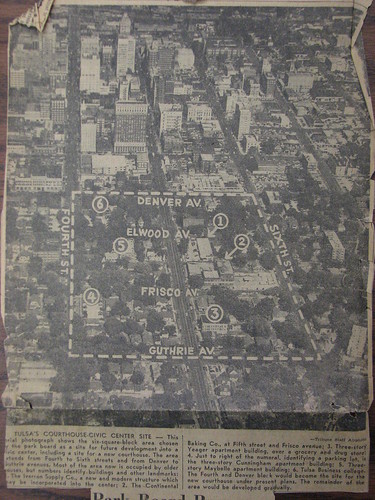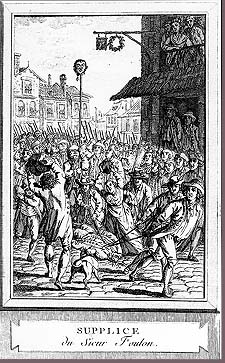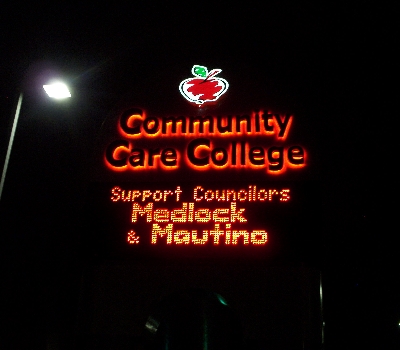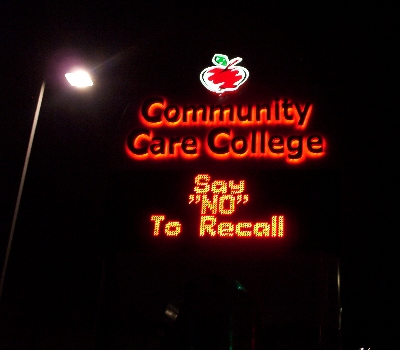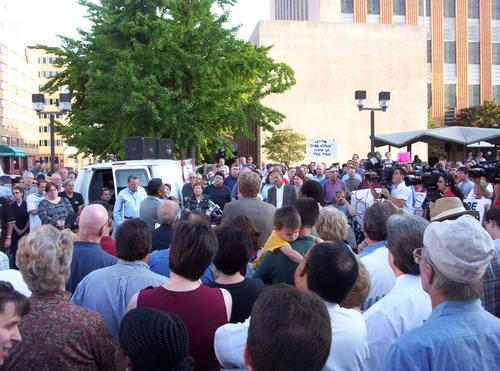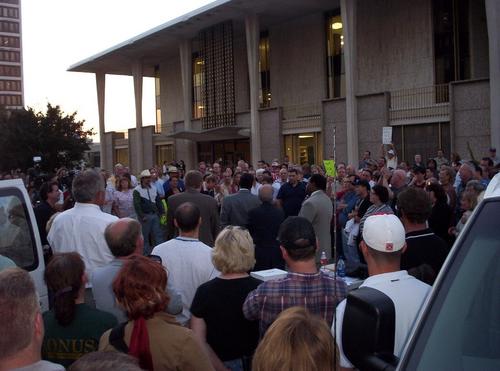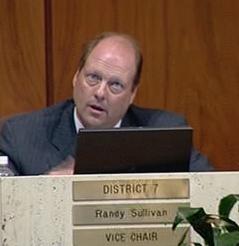Astounding! A police department that investigates burglaries
Not Tulsa, of course; Kitsap County, Washington:
Authorities are looking for a burglary suspect they said was identified through DNA left on a beer can at a crime scene in 2005.Prosecutors in Kitsap County have charged Curtis Kees Napoleon, a 20-year-old North Kitsap man, in thefts of over $30,000 in missing appliances, boat motors and other items that disappeared around Dec. 20, 2005 from four residences.
Deputies found a can of Miller Lite beer and later asked Port Gamble S'Klallam Tribal Police to request people of interest in the case to submit voluntary saliva samples.
The State Patrol Crime Lab eventually made a match, deputies said.
(Hat tip to reader S. Lee.)
The Tulsa Police Department doesn't investigate burglaries as a matter of policy. It may not be an official policy, but it seems to be a de facto policy. They regard burglaries as an insurance matter and their role as one of documenting the loss. You might call the approach "no-fault burglary." It's a force of nature, apparently: Sometimes the hail damages your roof, sometimes a stranger enters your house and takes your stuff.
In 1999, our old home was burglarized while my wife and son were at our new house for inspections. They came home to find a girl's bicycle in the driveway and the front door open. They were afraid to go in for fear that someone was still in there. I came to the house, and we called the police. It took a few hours for them to show up. One officer checked the house to be sure no one was in side.
The burglar had apparently come in a back window. My wife had been in a hurry to get to the inspection and had forgotten to set the alarm. He had been after easily portable valuables. He dumped my wife's earring box and rummaged through drawers. He stole a camcorder and 35mm camera (with photos and video of my son's 3rd birthday party), a portable CD player and CDs, some house keys on a ring inside the house, and a checkbook.
Other officers came a bit later and talked to us. We left things in their state of disarray, not wanting to disturb any physical evidence. We asked about the girl's bike. Probably was taken from a burglary earlier in the day. "Do you need it for evidence?" No, keep it for your kid or give it away. "Aren't you going to dust for fingerprints?" No.
They handed us a phone headset that they had found at another nearby burglary. It was ours. So there were indications that the same person or persons had robbed three homes in the same day, taking a bike from the first house and abandoning it at our house, then taking a number of items at our house and accidentally dropping one of them at the next house. And yet the officers made it clear they were only there to make a record of the burglary and to provide us a report to take to our insurance company.
We had the locks changed, called the bank to stop payment on the checks that had been stolen. We tracked down the serial numbers of the camera, camcorder, and CD player, and filed a supplemental report with the police, thinking they would be put on the list that pawn shops use to check for stolen property, hoping it might help the police to catch the crooks.
Then one of our stolen checks was received by the bank. (The bank didn't notify me immediately -- it showed up in the next statement.) Someone had written a check to Pizza Hut delivery at 49th and Peoria. I requested an image of the check from the bank. They had forged my signature -- not even close. The phone number from which the order had been called in had been written on the check by the delivery man.
I notified the detective assigned to the case. Here was a lead. At the very least, we knew that someone had committed a crime by trying to pass a stolen check.
The detective was uninterested. He said that wouldn't be enough to tie someone to the burglary and get a conviction. Well, of course not, but surely it was enough to justify at least visiting the residence where the pizza had been delivered and the stolen check had been offered in payment. Nope.
I'm not sure why TPD doesn't pursue burglars more vigorously. Perhaps it's because they aren't prosecuted vigorously. Perhaps it's a lack of police manpower. Perhaps it's a mistaken philosophy of policing. I've heard enough stories from others to know that it isn't a matter of the individual cops not caring. The decision was made above their pay grade.
Whatever the reason, it needs to change.
It seems to me that some of these burglaries could end in home invasion, assault, and even murder. Some of these burglars could be tied to crime syndicates. "Broken windows" theory says that when you start to enforce lesser laws, the rate of more serious crime goes down.
I wonder if insurance companies keep tabs on which cities have the highest rate of burglary or the highest rate of unsolved burglary cases. We get an insurance discount for having a monitored alarm system. Not that I want my premiums to go up, but it seems reasonable that insurance companies would raise rates on policyholders in cities that are effectively sanctuaries for burglary.
